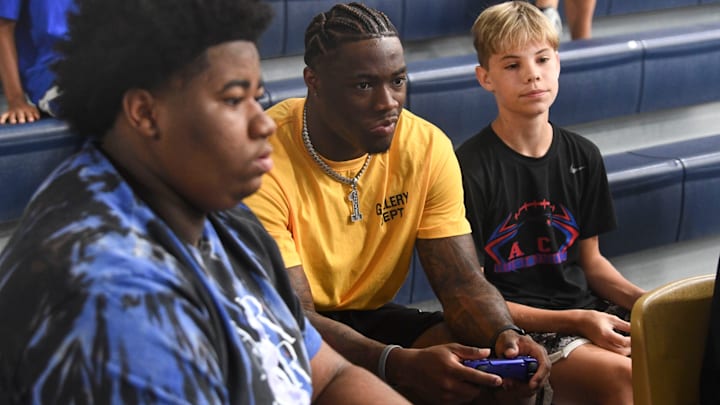EA Sports' new College Football 26 game has altered the way college players are compensated. Not only will players receive a check for being in the video game, but their schools will also see revenue depending on how often their university is featured in the game. With the rise in popularity of the game and fans' valuation of schools and players based on even in-game ratings, a major question needs to be asked: Can video game ratings affect NIL valuations for college players?
Before you jump right to "No, coaches and administrations don't care at all about that." Consider the whole picture for a minute. Sure, coaches don't care if a player is rated 79 in the game but is actually a perfect fit for their scheme and a better player than the game gives them credit for. Yet, that's just one window into NIL valuations.
Coaches won't use video games for NIL, but agents and players will
There's the players' perception of themselves that a video game may inflate that perception or be used to stack players up against players. You may think players don't care, but they care about stars in high school recruiting, and they care about contracts in the NFL.
Think about T.J. Watt's new contract with the Pittsburgh Steelers. He wanted $41 million a year for a reason. What was that reason? Myles Garrett makes $40 million a year. That's precisely how video game ratings may paint a picture for a player. "I'm the 7th best safety in College Football 26 and I want an NIL deal that reflects it."
That's still only two windows into this idea. What about agents? Now, almost every D1 athlete for basketball or football has an agent. Agents will use any leverage they can get their hands on to make a case for more money for their player. Video games are just one more metric they can point to.
Finally, and maybe most importantly, is the final window of this question: fan perception. NIL is reverting to its original purpose now that revenue sharing is underway. That is for the proven "valid business purpose." This means that companies seeking to recruit players will do so based on fan perception and star power. If a player is perceived as a star, even if that comes from a video game, then a business will allocate more NIL funds towards that player.
Thus, the answer isn't an easy no. Video games will actually play a factor in NIL deals, even if it's just one more data point that agents, fans, and players use to negotiate.
